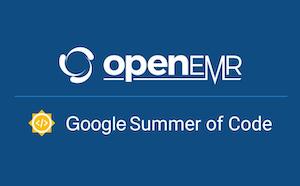Go
See the following -
5 open source dashboard tools for visualizing data
 To start with a confession, I like dashboards. A lot. I've always been fascinated by finding new and interesting ways to bring meaning to data with interactive visualization tools. While I'm definitely a geek for numbers, the human mind is simply much better at interpreting trends visually than it is just picking them out a spreadsheet. And even when your main interest in a dataset is the raw numbers themselves, a dashboard can help to bring meaning by highlighting which values matter most, and what the context of those numbers is...
To start with a confession, I like dashboards. A lot. I've always been fascinated by finding new and interesting ways to bring meaning to data with interactive visualization tools. While I'm definitely a geek for numbers, the human mind is simply much better at interpreting trends visually than it is just picking them out a spreadsheet. And even when your main interest in a dataset is the raw numbers themselves, a dashboard can help to bring meaning by highlighting which values matter most, and what the context of those numbers is...
- Login to post comments
A Tour of Google's 2016 Open Source Releases
 Open source software enables Google to build things quickly and efficiently without reinventing the wheel, allowing us to focus on solving new problems. We stand on the shoulders of giants, and we know it. This is why we support open source and make it easy for Googlers to release the projects they're working on internally as open source. We've released more than 20-million lines of open source code to date, including projects such as Android, Angular, Chromium, Kubernetes, and TensorFlow. Our releases also include many projects you may not be familiar with, such as Cartographer, Omnitone, and Yeoman...
Open source software enables Google to build things quickly and efficiently without reinventing the wheel, allowing us to focus on solving new problems. We stand on the shoulders of giants, and we know it. This is why we support open source and make it easy for Googlers to release the projects they're working on internally as open source. We've released more than 20-million lines of open source code to date, including projects such as Android, Angular, Chromium, Kubernetes, and TensorFlow. Our releases also include many projects you may not be familiar with, such as Cartographer, Omnitone, and Yeoman...
- Login to post comments
An Introduction to Libral, a Systems Management Library for Linux
 Linux, in keeping with Unix traditions, doesn't have a comprehensive systems management API. Instead, management is done through a variety of special-purpose tools and APIs, all with their own conventions and idiosyncrasies. That makes scripting even simple systems-management tasks difficult and brittle. For example, changing the login shell of the "app" user is done by running usermod -s /sbin/nologin app. This works great until it is attempted on a system that does not have an app user. To fix the ensuing failure, the enterprising script writer might now resort to...
Linux, in keeping with Unix traditions, doesn't have a comprehensive systems management API. Instead, management is done through a variety of special-purpose tools and APIs, all with their own conventions and idiosyncrasies. That makes scripting even simple systems-management tasks difficult and brittle. For example, changing the login shell of the "app" user is done by running usermod -s /sbin/nologin app. This works great until it is attempted on a system that does not have an app user. To fix the ensuing failure, the enterprising script writer might now resort to...
- Login to post comments
Hot Programming Trends from 2016
 Technology is constantly moving forward—well, maybe not always forward, but always moving. Even for someone who keeps an eye on the trends and their effect on programmers, discerning exactly where things are headed can be a challenge. My clearest glimpse into open source programming trends always comes in the fall when I work with my fellow chairs, Kelsey Hightower and Scott Hanselman, and our fantastic programming committee to sculpt the coming year's OSCON (O'Reilly Open Source Convention). The proposals that we get and the number focused on specific topics turn out to be good indicators of hot trends in the open source world. What follows is an overview of the top programming trends we saw in 2016...
Technology is constantly moving forward—well, maybe not always forward, but always moving. Even for someone who keeps an eye on the trends and their effect on programmers, discerning exactly where things are headed can be a challenge. My clearest glimpse into open source programming trends always comes in the fall when I work with my fellow chairs, Kelsey Hightower and Scott Hanselman, and our fantastic programming committee to sculpt the coming year's OSCON (O'Reilly Open Source Convention). The proposals that we get and the number focused on specific topics turn out to be good indicators of hot trends in the open source world. What follows is an overview of the top programming trends we saw in 2016...
- Login to post comments
How Time-series Databases Help Make Sense of Sensors
 Infrastructure environments' needs and demands change every year and systems become more complex and involved. But all this growth is meaningless if we don't understand the infrastructure and what's happening in our environment. This is where monitoring tools and software come in; they give operators and administrators the ability to see problems in their environments and fix them in real time. But what if we want to predict problems before they happen? Collecting metrics and data about our environment gives us a window into how our infrastructure is performing and lets us make predictions based on data. When we know and understand what's happening, we can prevent problems, rather than just fixing them...
Infrastructure environments' needs and demands change every year and systems become more complex and involved. But all this growth is meaningless if we don't understand the infrastructure and what's happening in our environment. This is where monitoring tools and software come in; they give operators and administrators the ability to see problems in their environments and fix them in real time. But what if we want to predict problems before they happen? Collecting metrics and data about our environment gives us a window into how our infrastructure is performing and lets us make predictions based on data. When we know and understand what's happening, we can prevent problems, rather than just fixing them...
- Login to post comments
Microsoft Azure container team releases first open-source developer tool
At CoreOS Fest in San Francisco, Calif., Microsoft's Gabe Monroy, lead project manager for containers on Microsoft Azure, announced the release of Draft, a tool to streamline development of applications running on any Kubernetes cluster. With Draft, which Monroy said was the first open-source program to emerge from the Azure Container group, developers can use two simple commands to begin hacking on container-based applications with no knowledge of Docker or Kubernetes. "In fact," Monroy claimed, "developers don't even need Docker or Kubernetes installed to get going"...
- Login to post comments
OpenEMR's Participation at the Google Summer of Code 2020 a Resounding Success
 The OpenEMR project participated in the recently completed Google Summer of Code 2020. Google Summer of Code is an international program by Google which sponsors and pairs open-source organizations with students to work on software development projects. Selected students are sponsored by Google to work on an open-source project for three months. For OpenEMR, Google Summer of Code was a resounding success and the OpenEMR community could not be prouder of the participating student's achievements. OpenEMR is appreciative of the 20 mentors who contributed their time and expertise. One of the core OpenEMR mentors, Tyler Wrenn, stated, "Google Summer of Code was a great experience for mentors, students, and OpenEMR, and I look very forward to doing it again next year."
The OpenEMR project participated in the recently completed Google Summer of Code 2020. Google Summer of Code is an international program by Google which sponsors and pairs open-source organizations with students to work on software development projects. Selected students are sponsored by Google to work on an open-source project for three months. For OpenEMR, Google Summer of Code was a resounding success and the OpenEMR community could not be prouder of the participating student's achievements. OpenEMR is appreciative of the 20 mentors who contributed their time and expertise. One of the core OpenEMR mentors, Tyler Wrenn, stated, "Google Summer of Code was a great experience for mentors, students, and OpenEMR, and I look very forward to doing it again next year."
- Login to post comments
Time to Choose: Are You Investing in Open Source or Not?
 In 1996, the term "open source" didn't exist. Yet 20 years later, open source technology spans countless projects and brings together the collective talent of millions. Take a close look at any open source project or community of developers and you'll find incredible levels of speed, innovation, and agility. Open source participation varies wildly. Some developers devote their professional lives to open source software projects; others contribute their time and talent as an avocation. While the communities behind the software continue to grow, the technology itself is playing both a foundational role in the most important technology developments of the past 20 years and is also an integral role in the strategies powering many of today's leading organizations...
In 1996, the term "open source" didn't exist. Yet 20 years later, open source technology spans countless projects and brings together the collective talent of millions. Take a close look at any open source project or community of developers and you'll find incredible levels of speed, innovation, and agility. Open source participation varies wildly. Some developers devote their professional lives to open source software projects; others contribute their time and talent as an avocation. While the communities behind the software continue to grow, the technology itself is playing both a foundational role in the most important technology developments of the past 20 years and is also an integral role in the strategies powering many of today's leading organizations...
- Login to post comments